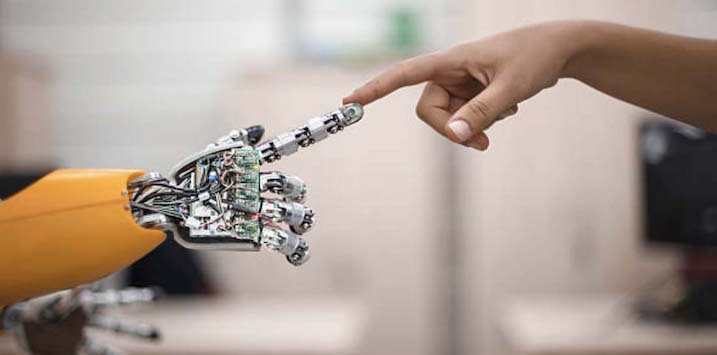
I am not a robot, I am a human being
As technological innovations increasingly edge into the workforce, many people fear that robots and machines are destined to take jobs humans have held for decades. Over the last two decades, automation has replaced blue collar jobs in manufacturing and warehousing, and now white collar jobs are increasingly under threat.
Microsoft founder Bill Gates is so concerned about the impact robots might have on employment that he has suggested corporations pay a robot tax for roles that replace humans with robots. Robots and Artificial Intelligence (AI) are going to have a profound impact on many occupations and robotic process automation (RPA) will have a massive impact on roles which are “rules based”.
RPA optimises the execution of business processes, particularly where there is high volume repetitive work such as recognising a purchase order number on a scanned document and automatically processing it. Theoretically, “knowledge workers” are freed up to add value.
In mid-2016, IBM opened the Watson Centre in Singapore’s financial district, intended to be a hub where the 5,000 cognitive solution professionals working in the region can test new ideas using IBM’s data analytic technologies.
Separately, Mastercard and the Singapore Economic Development Board signed a memorandum of understanding to develop transformative solutions with robots.
Mastercard’s Singapore lab has already developed a payments app for the humanoid robot Pepper, which has been trialled in Asian Pizza Hut restaurants, taking meal orders and receiving customer payments.
In February 2017, the US arm of H&R Block announced that it was working with IBM’s cognitive computing platform Watson to ensure its retail clients don’t miss out on any tax deductions. Watson has been trained on the 74,000 pages of the US federal tax code and prompts a H&R Block accountant about deduction or claim opportunities as they complete a client’s tax return.
Faster, cheaper computers and the cloud are adding grunt to reach AI and robotics, while the prospect for quantum computing promises a step change in terms of processing time.
The Commonwealth Bank of Australia (CBA) has invested $15 million in the University of NSW Quantum computing project, and it will be interesting to see whether the transformative potential is realised over medium-term, and the degree it is realised in terms of “savings” related to CBA’s labour force.
Finally, when Donald Trump was running for President in the November 2016 US election, he promised voters from the American “rust belt” to “make America great again” by bringing back manufacturing which had been lost to low cost developing economies over many decades. Trump seems to have misjudged the influence robots and artificial intelligence will be having on society, as illustrated in the following Amazon link.
If quantum computing does truly become viable in the short term future, banks like CBA will have enormous issues to contend with – especially around the fact that existing paradigms of computer encryption will become completely redundant, meaning that vital security protocols that protect all digital data today will need to be completely re-engineered.
Thank you Joe. A very interesting point to consider.
Here is a headline: This AI expert says that a robot economy will force us to give people unconditional free money. The article is in Business Insider.
There are lots of articles like this one these days. (Are they being written by commie algorithms?)
It rests on the universal assumption of all socialist thought, namely, the assumption that nature imposes no inherent limits. Therefore, scarcity is the product of evil institutions — institutions based on private ownership. “Property is theft,” announced Proudhon. So, socialists conclude, the state should steal it back from the thieves and give it to everyone. This has been the socialist party line for 200 years.
There is fear that computerization will produce mass unemployment over the next 30 years. The computers will do the work of hundreds of millions of workers, leaving no jobs for these displaced workers.
One implication is this, we are told: the federal government will have to put them on welfare. Otherwise, they will starve. They will not be able to compete with robots and software.
I am curious. Who will pay the taxes to do this? Robots?
No, no, no: we must tax the rich.
I am curious. How will they be rich if there is no one able to afford to buy their products?
https://www.garynorth.com/public/13045.cfm
This guy makes some interesting points on this subject.
https://www.youtube.com/watch?v=deMEXCsB7L4
In particular he states in the early 1800s people worked an average of 70 hours/week. Over the centuries that has dropped to an average of 40 hours/week. Keynes predicted by the year 2030 it will be 15 hours/week. Which means more leisure time as the menial tasks in life are automated.
Thank you Dennis for the excellent video – “Will Robots Take Our Jobs?” The ramifications from digital deflation and gaining an insight on where the new jobs come from will be an interesting journey.